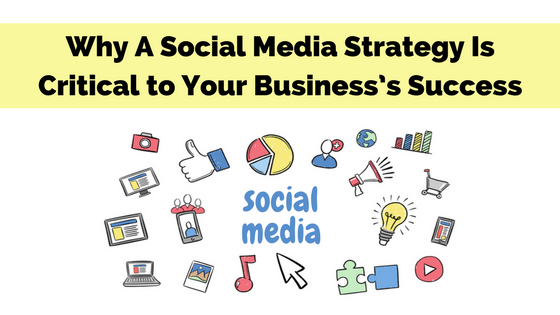— December 19, 2017
Is your social media strategy 2018 proof?
The Pew Research Center reports social media traffic increased from 5% in 2005 to 69% by 2011 — and that number has likely increased since then.
If you own a business, the stat might not impress you much. But it should.
Use the following information to help you decide where and how to spend your time on social media.
Bye, Yellow Pages
Technically, the Yellow Pages still live. But few people remember the last time they cracked one open to find a professional service, restaurant, store, or emergency clinic.
No, they — and possibly you — went to a desktop computer, tablet, or smartphone to search the internet and then either placed a call or drove to the location.
You might be raising a hand, wondering how social media offers better benefits than a simple Google search can.
While having your information on Google can make your business easy for customers to find, social media produces backlinks, which can contribute to search engine rankings (and should be an essential part of your social media strategy).
In addition, Twitter posts often feature as the top results on search engine result pages (SERPs).
And the higher your business ranks on a SERP, the more visible you are online to your customers who need your specific products and services.
Hello, Audience
A solid social media strategy also helps build your target audience, though it won’t define the target for you. That work remains your responsibility.
Social media augments it, helping you locate and then research target audiences you’ve set.
Brooke B. Sellas, B Squared Media’s CEO, calls the entire process “audience development,” which she says starts with buyer personas. You base these personas either on existing customers or ideal customers, describing them in minute detail.
For example, you could define your audience using the following six characteristics:
- Age
- Gender
- Life stage (single, married, divorced, retired, etc.)
- Geographical location
- Occupation
- Income bracket
The six qualities could lead to multiple target audiences, which is fine. Your product or service likely attracts different buyers, and you can always use the additional personas to appeal to future audiences if your products change.
Take that a step further and study all target audiences through social media.
Rich Brooks at Social Media Examiner suggests using the Facebook Ads Manager to conduct initial research since many people have a Facebook account.
Employing the network to explore your audience will give a good estimate on how big or small it is so you can develop an effective marketing plan.
Take That, Competition
As mentioned above, Rudkin warned that if you weren’t on social media, customers would flock toward someone who was.
Jayson DeMers, Forbes contributor, and SEO consultant offers a similar warning. He says that without an online presence, you risk being perceived as out of date and unwilling to change.
Essentially, a nonexistent or poor social media presence chips away at your reputation — something you may have taken decades to establish.
Instead, use a smart social media strategy to get on the social networks where your potential customers spend time and beat the competitors at their own game.
You can also employ social media to monitor the competition and find where they excel and struggle.
With this knowledge in hand, you can then adjust your marketing tactics to follow or avoid your competitors’ examples and marketing tactics.
If you’re not sure how to start posting on social media, don’t worry, there are plenty of tools to help your brand find its voice.
Onward, Social Media Strategy!
Social media serves a couple other purposes too.
First, you can use social media to listen to and engage with your audience.
Customers often turn to social media to share good and bad experiences, and you want to be there to respond to both ends of the conversation.
Amplify positive feedback and assuage anything critical.
You should never ignore a customer’s complaint. Rather, resolve it as best and fast as you can to avoid an online communications crisis.
Second, your social media strategy should aim to advertise your service or product.
Consumers may not watch standard television as much anymore, but they linger on social media sites.
As long as you generate creative social ads, not ones that detract from the social experience, you can attract more views and clicks — and that equates to more sales.
Your business can use social media effectively as long as you take the time to be active on the platform you choose.
How will you implement social media into your marketing strategy? Let us know in the comments below.
Digital & Social Articles on Business 2 Community
(125)










